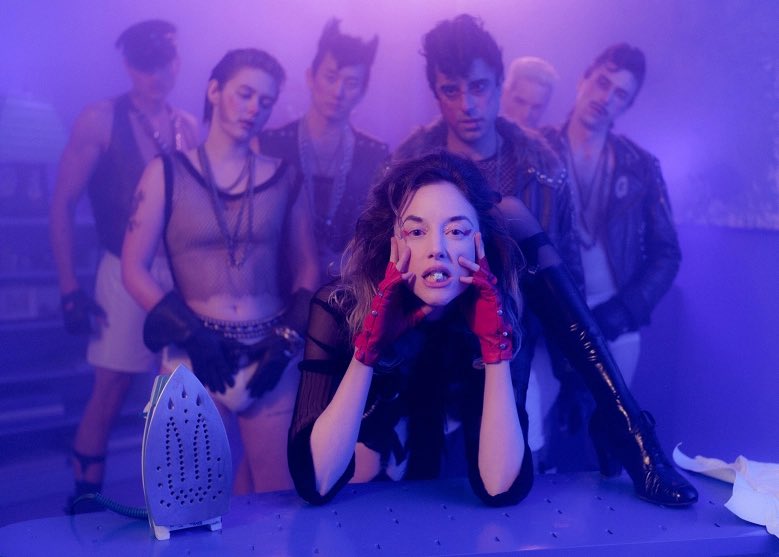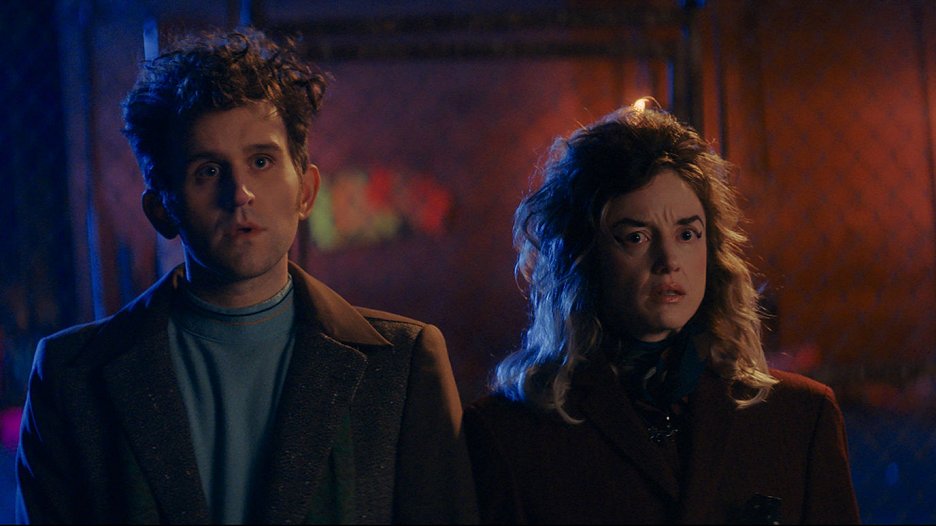Please Baby Please
15There was a recent hoo-ha with this year’s Oscars when British actress Andrea Riseborough found herself nominated in the Best Actress category for her excellent performance in the low budget indie film To Leslie.
She was superb, as you would expect from one of the best actresses of her generation, but it led to an internal investigation by the Academy, as it was believed that a rogue campaign led by some influential names who had private screenings of the film for friends, such as Gwyneth Paltrow, promoted the film unfairly within the voting circle. It was a charge that was later dropped, but it’s fair to say it mudded Riseborough’s name, unfairly so.
It certainly was a big deal made out of nothing, especially as she didn’t win – Michelle Yeoh did – but perhaps in a way, it would have helped, raising her profile as it did, which would come in handy for this film.

I refuse to iron any other way
Living in a fairly basic apartment are newlyweds Suze (Riseborough) and Arthur (Harry Melling). It soon become s clear however that they may not be living in the nicest of neighbourhoods, when they witness a couple murdered in front of them by a local gang.
They get away unscathed, luckily enough, but the gang have their eyes on them now, knowing where they live. The incident did something to Arthur too, as he felt a connection with a gang member. But surely no good can come from appearing on the radar of a particularly nasty gang.

.I don't remember Phantom of the Opera like this, do you?
Despite her recent nomination, Riseborough is the type of actor who keeps her head down, choosing highly different roles from one project to the next, meaning she doesn’t have the biggest of profiles. But those who know her work, love it. And this is no different.
Amanda Kramer’s film is a filmic cabaret, a queer and quirky homage to West Side Story, very much turned inside out. It’s an intimate show, full of interior shots of bars and apartment rooms, bereft of any kind of natural daylight, replaced with vibrant blue and red lighting throughout. It has the vibe of a stage production about it, taking place in a small studio space where the audience are forced to stand, making for a truly dramatic experience.
It is a film that explores all things sex, including various roles, gender and orientation and questioning attitudes towards them all.
You can appreciate the appeal for its two main leads, both of whom are very much in demand, with the Oscar-nominated Riseborough, and Melling, who was utterly outstanding opposite Christian Bale in the recent The Pale Blue Eye; both characters are somewhat flawed, and confused about their relationship, as things become slightly clearer as the film progresses. And both give compelling performances.
It also features Demi Moore, who’s pretty picky about the roles she takes on these days, and clearly has a ball playing Maureen here.
It’s a fascinating watch, with a very distinct look and feel about it, deliberately theatrical, which is unlikely to see it flourish in the mainstream. But you kind of get the impression that it doesn’t really matter, to either its two leads or any other member of the cast and crew, especially its director Kramer, all of whom do a pretty incredible job considering the budget must have been on the paltry side.
It may be a tad claustrophobic as far as its visual approach is concerned, and the script, which is very sharp in places, may struggle in terms of story development, but overall it makes for a bold bit of storytelling, that is bound to make an impression, one way or another.
